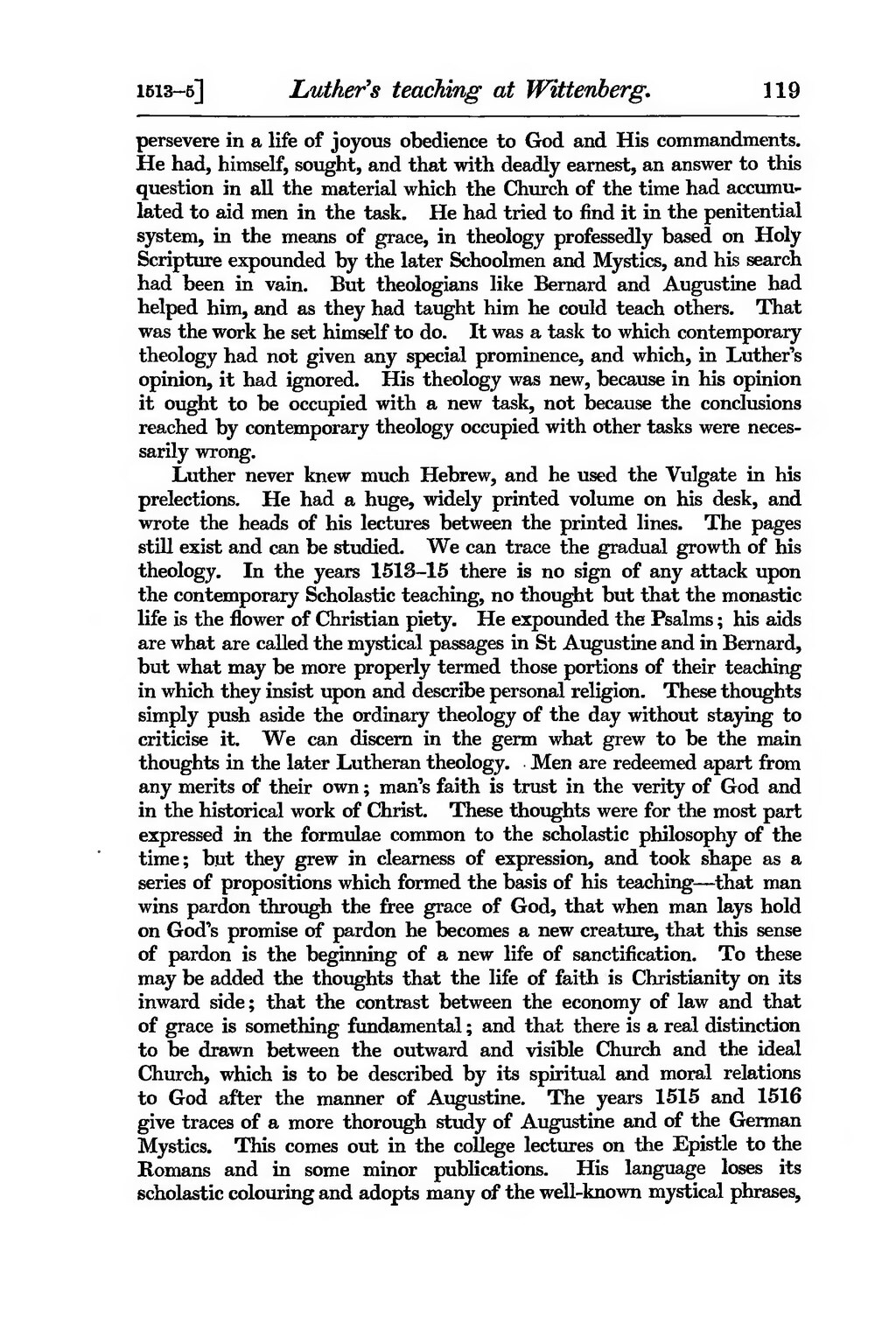persevere in a life of joyous obedience to God and His commandments. He had, himself, sought, and that with deadly earnest, an answer to this question in all the material which the Church of the time had accumulated to aid men in the task. He had tried to find it in the penitential system, in the means of grace, in theology professedly based on Holy Scripture expounded by the later Schoolmen and Mystics, and his search had been in vain. But theologians like Bernard and Augustine had helped him, and as they had taught him he could teach others. That WAS the work he set himself to do. It was a task to which contemporary theology had not given any special prominence, and which, in Luther's opinion, it had ignored. His theology was new, because in his opinion it ought to be occupied with a new task, not because the conclusions reached by contemporary theology occupied with other tasks were necessarily wrong.
Luther never knew much Hebrew, and he used the Vulgate in his prelections. He had a huge, widely printed volume on his desk, and wrote the heads of his lectures between the printed lines. The pages still exist and can be studied. We can trace the gradual growth of his theology. In the years 1513-15 there is no sign of any attack upon the contemporary Scholastic teaching, no thought but that the monastic life is the flower of Christian piety. He expounded the Psalms; his aids are what are called the mystical passages in St Augustine and in Bernard, but what may be more properly termed those portions of their teaching in which they insist upon and describe personal religion. These thoughts simply push aside the ordinary theology of the day without staying to criticise it. We can discern in the germ what grew to be the main thoughts in the later Lutheran theology. Men are redeemed apart from any merits of their own; man's faith is trust in the verity of God and in the historical work of Christ. These thoughts were for the most part expressed in the formulae common to the scholastic philosophy of the time; but they grew in clearness of expression, and took shape as a series of propositions which formed the basis of his teaching-that man wins pardon through the free grace of God, that when man lays hold on God's promise of pardon he becomes a new creature, that this sense of pardon is the beginning of a new life of sanctification. To these may be added the thoughts that the life of faith is Christianity on its inward side; that the contrast between the economy of law and that of grace is something fundamental; and that there is a real distinction to be drawn between the outward and visible Church and the ideal Church, which is to be described by its spiritual and moral relations to God after the manner of Augustine. The years 1515 and 1516 give traces of a more thorough study of Augustine and of the German Mystics. This comes out in the college lectures on the Epistle to the Romans and in some minor publications. His language loses its scholastic colouring and adopts many of the well-known mystical phrases,
